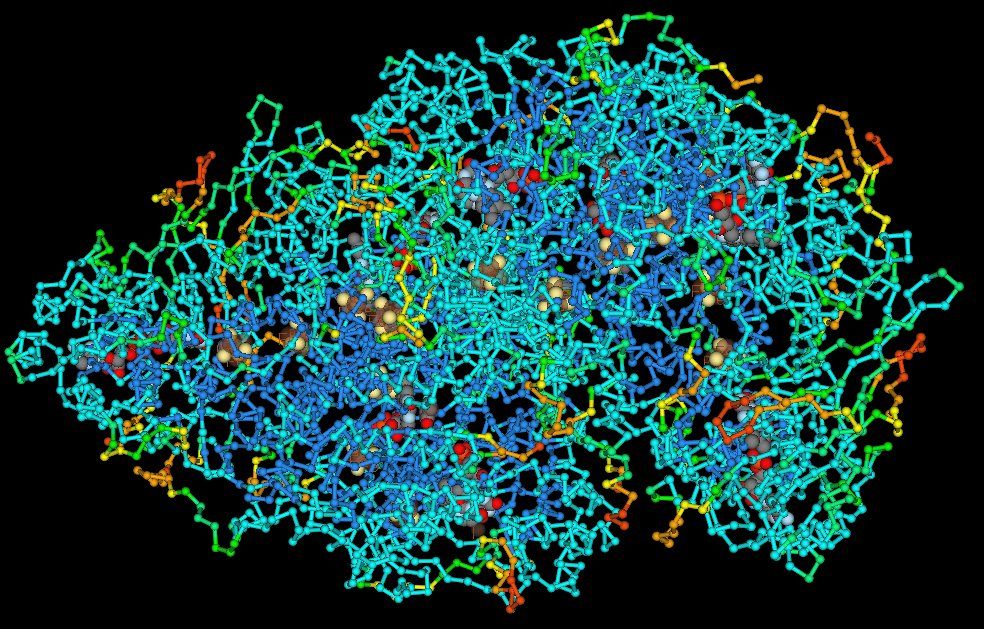Polymers in Building And Construction: Stronger, Lighter, and Extra Resilient
Taking Full Advantage Of the Potential of Polymers: Discover the Complex Benefits and Practical Makes Use Of
In the large landscape of material scientific research, polymers stand apart as versatile substances that have penetrated nearly every facet of modern life. Their application extends various sectors, from manufacturing and building and construction to health care and technology. The diverse advantages and functional usages of polymers remain to advance, providing cutting-edge services to intricate obstacles. By checking out exactly how polymers can boost item longevity, drive sustainability initiatives, transform healthcare remedies, and lead the way for future technological advancements, we can uncover a globe of possibilities waiting to be used.
Relevance of Polymers in Modern Industries
Polymers play a critical function in modern-day industries, offering as flexible products that drive advancement and performance throughout a large range of industries. These complicated particles, made up of duplicated subunits, have actually changed sectors such as auto, aerospace, electronic devices, medical care, and more. In the automobile industry, polymers have enabled the development of lightweight yet sturdy parts, enhancing gas performance and general performance. Aerospace industries rely on polymers for their high strength-to-weight ratio, crucial for airplane and spacecraft building. The electronic devices market benefits from the shielding homes of polymers, important for manufacturing circuit boards and digital gadgets (Polymers). Furthermore, polymers are extensively made use of in the health care industry for drug distribution systems, clinical devices, and biocompatible products. Their flexibility, toughness, and cost-effectiveness make polymers important in modern production processes, fostering innovations and driving progression in different industries worldwide. Welcoming the capacity of polymers is vital to opening further technologies and dealing with the progressing needs these days's industrial landscape.
Enhancing Item Resilience With Polymers
With a concentrate on durability and strength, integrating advanced polymer innovations right into item design has come to be a foundation of improving durability in modern manufacturing processes. Polymers use a large range of residential properties that add to the total resilience of products. One essential advantage is their resistance to rust, chemicals, and weathering, making them suitable for usage in different industries where exposure to severe conditions is typical.
Furthermore, polymers can be tailored to satisfy particular toughness needs, permitting makers to tailor items according to their meant use and expected lifespan. By incorporating polymers right into item parts, makers can improve strength and impact resistance, reducing the likelihood of damage or put on gradually.
Furthermore, polymers are lightweight yet durable, providing durability without including unneeded weight to products. This characteristic is specifically beneficial in sectors such as aerospace and vehicle, where lightweight materials are essential for boosting fuel efficiency and total efficiency.
Sustainability Developments Through Polymer Technology
In the world of modern-day manufacturing click to read more and product layout, the ingenious application of polymers is driving significant innovations in sustainability methods. Polymer development plays an essential duty in improving sustainability by providing solutions that lower environmental impact throughout different sectors. One crucial aspect where polymers excel remains in allowing the development of light-weight yet resilient products that contribute to sustain efficiency in transport and minimize overall power consumption. In addition, the recyclability and biodegradability of particular polymers additionally promote lasting methods by reducing waste and pollution.
Furthermore, improvements in polymer modern technology have caused the creation of bio-based and sustainable polymers, originated from natural sources such as plants, that supply a more lasting choice to traditional petroleum-based plastics. These environmentally friendly polymers not only help in reducing reliance on fossil gas yet additionally decrease greenhouse gas discharges throughout production. By integrating these ingenious polymers into manufacturing processes, business can reduce their ecological footprint and move in the direction of even more sustainable practices, lining up with international initiatives to battle environment modification and promote a round economic situation.
Polymers in Medical Care: Revolutionizing Medical Solutions

One of the crucial areas where check out here polymers are making significant strides is in the growth of targeted medication delivery systems. By enveloping medicines within polymeric nanoparticles or micelles, researchers can enhance medicine stability, improve bioavailability, and make it possible for controlled launch, causing much more effective therapy programs with reduced negative effects.
In addition, polymers are crucial in the field of regenerative medicine, where they are utilized to create scaffolds that resemble the extracellular matrix, offering support for cell development and tissue regrowth. This modern technology holds enormous guarantee for repairing harmed organs, advertising wound recovery, and advancing customized medication techniques.
In essence, the integration of polymers in medical care is driving development, boosting treatment efficacy, and eventually enhancing person results in means previously assumed unattainable.
Future Applications and Innovations in Polymer Modern Technology
Advancing at the center of scientific exploration, polymer innovation remains to lead he said the way for groundbreaking applications and developments forming diverse markets. In the realm of sustainable packaging, eco-friendly polymers are getting traction as eco-friendly options to conventional plastics. These polymers damage down naturally, minimizing the ecological influence of single-use products. In the area of electronic devices, conductive polymers are changing wearable technology and flexible electronics. Their unique buildings enable the development of stretchable circuits and sensing units, enabling brand-new opportunities in medical care surveillance and smart clothing. Additionally, polymer nanocomposites are enhancing the mechanical and thermal residential or commercial properties of materials, resulting in stronger and lighter components in aerospace and automobile industries. Looking ahead, researchers are exploring the potential of shape-memory polymers for applications in robotics and biomedical tools, where products that can "keep in mind" and return to their initial forms use interesting possibilities for advancement. As polymer innovation remains to develop, the future holds unlimited opportunities for groundbreaking developments across numerous fields.
Verdict
